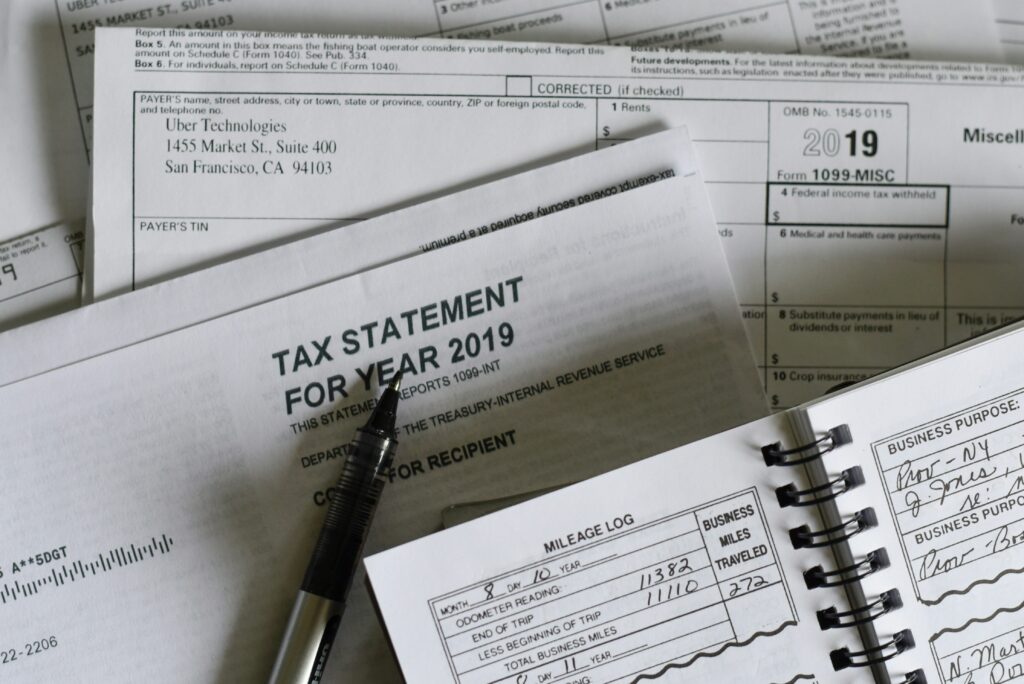The Ministry of Finance is responsible for the Dutch tax office (Belastingdienst). Taxes and social security payments are collected by the Belastingdienst. You should document your yearly income tax return between March 1 and May 1 of the next year. Penalties might apply on the off chance that you miss this cutoff time.

Tax obligations
Your tax obligations in the Netherlands depend on your residency status, which places you into one of four categories.
Resident taxpayers
It doesn’t matter where in the world you earn your money if you are a resident taxpayer in the Netherlands since you will be taxed on all of it. Any company, job, or investment profits or income in the form of periodic rewards are deemed taxable by the tax office.
Non-resident taxpayers
Only money earned inside the Netherlands is taxable if you are a non-resident taxpayer there. This includes earnings from work, operating a business, getting regular benefits, owning property in the Netherlands, or holding stock in a Dutch company. Some money received outside of the Netherlands, however, can also be subject to taxation.
Eligible non-resident taxpayers
If you live outside the Netherlands but pay charges on the greater part of your yearly pay there, you become a non-resident taxpayer. This applies if you’re in Switzerland, Bonaire, Saba, or Sint Eustatius. To qualify, you should pay charges on more than 90% of your worldwide pay in the Netherlands, permitting you to get a similar tariff reduction as residents.
Partial non-resident taxpayers
You may select the partial non-resident taxpayer status if you move to the nation and are qualified for the 30% ruling advantage for new hires. You are regarded as a non-resident taxpayer for certain income tariff purposes if you hold this status. In essence, you pay less tax in the Netherlands if you choose this.
The 30% decision
The 30% rule is a tariff break for foreign workers who provide unique capabilities to the Netherlands. The financial advantage is determined using your gross yearly wage. 30% of this total is exempt from income tax. Additionally, all of your bonuses, holiday allowance, and other benefits—outside of pension premiums—are subject to the decision. Before you begin the application process, your employer must concur that the 30% regulation applies to your circumstance, which is coordinated and supervised by the Belastingdienst. The 30% ruling’s lifespan was shortened from eight to five years in January 2019.
Income tax
In addition to the wage tariff that is routinely taken from your gross paycheck each month during the year, you’ll likely need to file a yearly income tax return. Other parts of your financial situation will be taken into consideration on your tax return, including mortgage, partner’s income, savings, investments, tax deductions for things like medical expenses, etc. Dutch income tariff estimates are outlined by the government. Earnings up to €69,398 were taxed at 37.07% in 2022 while earnings over that amount will be taxed at 49.5%. On income up to €73,031, you will pay a lower rate of 36.93% in 2023. A general tariff credit of €3,070 ($2,888 in 2022) is available to all employees. Substantial interest income is taxed at a rate of 26.9%. Income from investments and savings is taxed at a fixed rate of 32%. A taxpayer’s maximum amount of tax-free capital is €57,000. The amount of tax you must pay and any tax refunds may change if you have a tax partner, such as a spouse, a registered partnership, or someone living with you. For turnover tax (VAT), professionals who work independently and freelance are considered entrepreneurs. As a result, they must collect and remit VAT on their revenue. You may apply for the small company tax plan if your income is minimal. Journalists and translators, for example, are free from the VAT.
Self-employment tax
An individual who must charge and remit VAT on their income won’t always be regarded as an entrepreneur for income tariff purposes. You are not eligible to claim some tax deductions available to business owners if you don’t meet certain requirements and are not employed by your client. You may, however, deduct costs associated with your job. Digital tax returns must be filed when beginning a company. Entrepreneurs and citizens both must file income tax returns.
Company taxes and BTW rates
Dutch corporation tax applies to both public and private businesses. In 2023, a 19% organization charge rate is active if the taxable pay is under €200,000 (contrasted with €395,000 in 2022). At the point when the taxable pay exceeds this limit, organizations are to pay a 25.8% corporation charge rate. Certain businesses can request an exemption to pay less in corporation taxes. Non-resident entities, however, only have a small amount of Dutch revenue subject to tax. In the Netherlands, you will undoubtedly need to charge for your products or services. The invoice must provide a clear indication of the amount. Three distinct BTW tariffs are available: 0%, 9%, and 21%.
You may also find these articles helpful
Reasons to immigrate to The Netherlands
